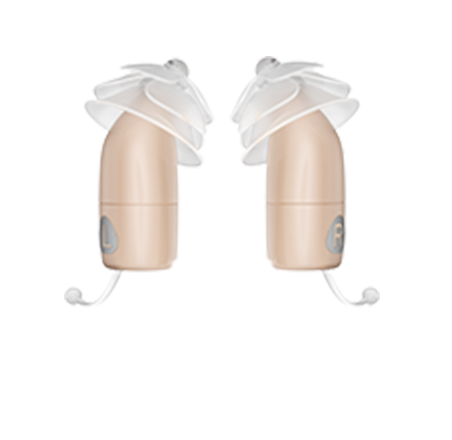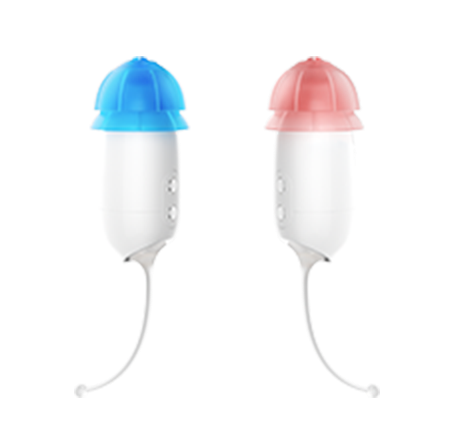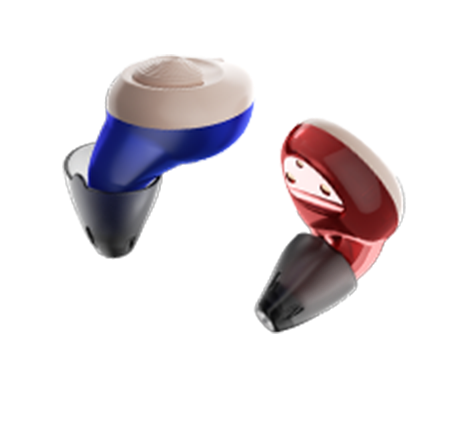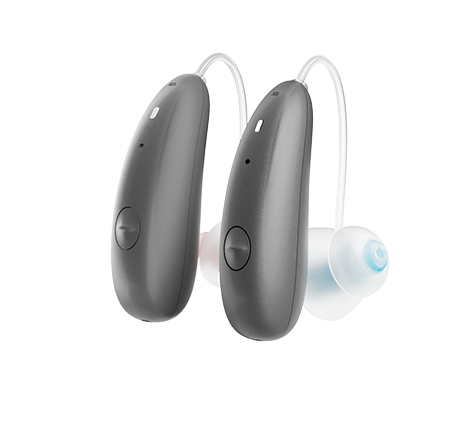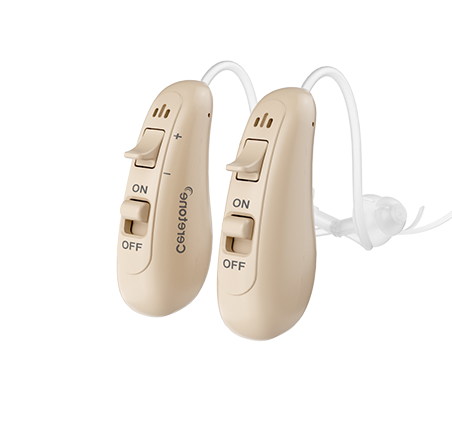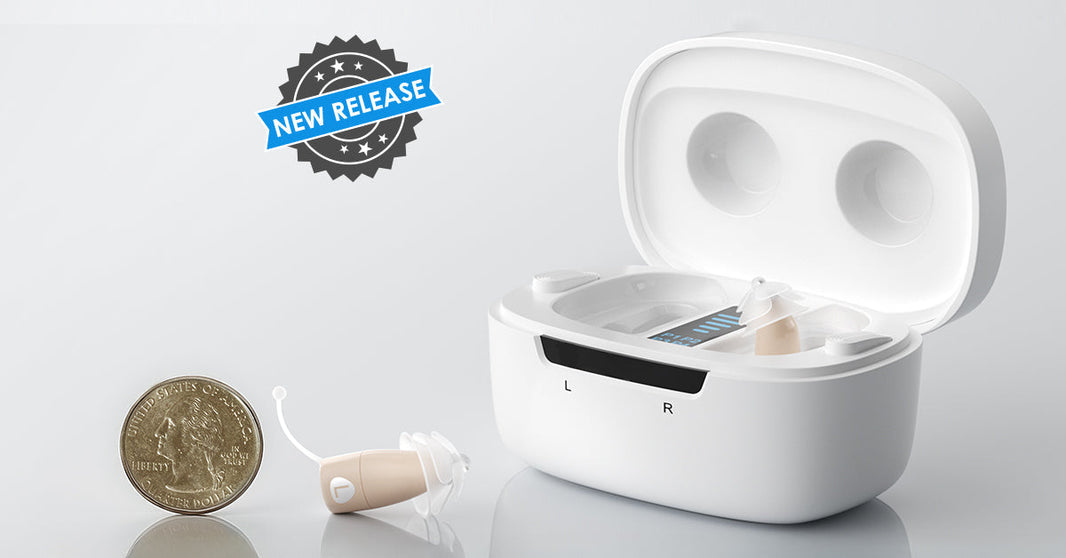
OTC Hearing Aids vs Prescription - The Hearing Aid Revolution

Indeed, the hearing aid market landscape has dramatically changed in recent years to usher in this new era of accessibility and choice for those seeking solutions for their hearing challenges.
OTC hearing aids are breaking the traditional mold alongside prescription hearing aids fitted by an audiologist, offering a more affordable and convenient option. They provide a promising escape for patients with mild to moderate hearing loss, allowing them to self-manage their hearing improvement without needing a prescription.
Prescription hearing aids, though often modified to fit the patient by an audiologist, continue to be well within reach of the sufferer of greater impairment. Knowing the types of available hearing aids and your needs will guide you in making the best choice.
The Rise of Over-the-Counter Hearing Aids
National Institute on Deafness and Other Communication Disorders estimated that about 15% of American adults face hearing health issues.
Such a gigantic market hasn't been unnoticed, and OTC hearing aids, also known as no prescription hearing aids, have become the new game-changer. In 2022, the FDA officially approved over-the-counter hearing aids for adults with mild to moderate hearing loss, marking a pivotal moment in the hearing aid industry.
OTC hearing aids are determined to make hearing aids more accessible and affordable. This is good news for those who worry about high cost or complexity in their prescription models. They will empower people to take charge of their hearing health, thus making it possible to include more people in demographics.
Prescription Hearing Aids: The Customized Advantage
Prescription hearing aids are crucial for consumers with severe or more challenging-to-treat hearing losses.
These devices are always provided and fitted by audiologists, who conduct a comprehensive diagnostic hearing evaluation and customize the settings as per individual needs.
Here, audiologists play a major role as professionals who ensure that the hearing aid fits properly and for the best sound quality.
From device settings to changes in hearing over time, continuation of support and fine-tuning by audiologists make prescription hearing aids an incredibly valuable option for those with significant hearing challenges.
OTC Hearing Aids vs Prescription: Difference Between OTC and Prescription Hearing Aids
Being educated on what makes OTC different from prescription options is important in enabling one to make an informed choice as the market for hearing aids changes. The major areas of difference include:
These are for people with mild to moderate hearing loss. They are suitable for people who can manage their hearing support independently without great complexity and professional involvement.
These hearing aids are for users with moderate to severe loss and fit the specific needs of the user. In most cases, people consult an audiologist to fit and further adjust the hearing aid.

|
Feature |
OTC Hearing Aids |
Prescription Hearing Aids |
|
Target Audience |
Mild to moderate hearing loss |
Mild to severe hearing loss |
|
Availability |
Direct purchase, online or retail |
Requires audiologist fitting and test |
|
Cost |
$200–$1,000 |
$1,000–$6,000+ (includes professional care) |
|
Insurance Coverage |
Rarely covered by insurance |
May be partially covered |
|
Adjustment Options |
Limited customization |
Custom-fitted and programmable |
OTC Hearing Aids vs Prescription: Availability and Fitting
OTC hearing aids are available at retail stores, pharmacies, and through online options. This makes them very easy for users to buy or acquire and set up at will.
Prescription Hearing Aids are fitted by an audiologist after an audit of your hearing. This makes the device tailor-made to suit your profile.
OTC Hearing Aids vs. Prescription: Cost

Normally, you'll be charged between $200 and $1000 per pair for OTC hearing aids. The amount is much cheaper for a budget-conscious person or someone with mild to moderate hearing loss who doesn't need many alterations.
Prescription hearing aids are priced from $2,000 to $6,000 a pair, primarily because they represent high-end technology and professional services rendered for fitting and aftercare.
OTC Hearing Aids vs. Prescription: Insurance
Insurance policies, particularly Medicare, do not usually cover an OTC hearing aid, as these are more consumer-grade than medical-grade equipment.
Some programs, especially those for the elderly or those having conditions that demand specific medical attention, offer partial or complete coverage of prescription hearing aids. Coverage, however, varies by company, so you must confirm what your insurance covers.
OTC Hearing Aids vs Prescription: Adjustment and Customization
Usually, we have limited customization options for OTC hearing aids. This allows the users to adjust their volume and pre-programmed sound profiles, but they can't personalize like prescription models.
With time, prescription hearing aids can be fine-tuned by an audiologist to adapt to the user's changing needs and preferences, thus making prescription hearing aids more variable and adaptable over the long term.
OTC Hearing Aids vs Prescription: Design and Innovation
While many of the OTC hearing aids that are available come in a more compact shape and are less customizable, some new model versions do include features like Bluetooth and rechargeable batteries. For example, Beacon Hearing Aids are rechargeable and come with Bluetooth and app control. With this self-fitting hearing aid, you can customize the device at home without needing clinic visits.
Prescription hearing aids are more diverse in appearance, from in-the-ear models to behind-the-ear models, and could include the latest features, such as advanced noise reduction schemes, advanced speech recognition technologies, and personal hearing profiles. Many prescription hearing aids come with smartphone integration that can adjust settings through special applications on smartphones.
OTC vs Prescription Hearing Aids: How to Choose

Generally, choosing between OTC and prescription hearing aids depends on the level of your hearing loss, budget, and personal preference.
It is suited for people with mild to moderate hearing loss when you need an affordable solution that is easy to fit and manage independently. Since OTC hearing aids provide meaningful improvements in everyday hearing and do not require a medical prescription or intensive adjustment, these devices will be ideal for most people.
Prescription Hearing Aids are still your best option if you have acute hearing loss and require follow-up professional guidance and fine-tuning. The better-enhanced features in prescription models and customization in fitting can make a positive difference in your overall listening experience and quality of life.
While they may be easy and convenient, in all probability, over-the-counter hearing aids are not ideal for children or people with high degrees of hearing impairment. Prescription hearing aids, fitted by a qualified audiologist, are essential for support that will bear up through time.
Where to Get Quality Over-The-Counter Hearing Aids
Due to the increasing popularity of OTC hearing aids, the number of suppliers in the market has also increased. So, you should be aware of the quality of vendors. Ceretone specializes in providing FDA-compliant OTC hearing aids that can match different needs. Typically, there are four popular types available: smallest CIC hearing aids, self-fitting RIC hearing aids, ITE hearing aids, and BTE hearing aids. These hearing aids all have advanced features and come with Ceretone apps for hearing customization. In addition, ceretone hearing aid reviews are also a factor to consider when evaluating whether it is worth it.
Are OTC Hearing Aids the Same Quality as Prescription Hearing Aids?
Prescription hearing aids usually provide a more refined listening experience and improved sound reproduction, especially for medium- to severe-level loss. For mild to moderate level loss, they appear to be adequate but don't have features like adaptive noise control, which would become important for more complex problems.
Prescribed hearing aids are one step ahead of the OTC ones, much more in terms of fine precision, comfort, and all-around quality of sound due to the level of customization provided through an audiologist and the support that follows.
Final Words
With this understanding of these similarities and differences, you would be making the right choice between which would best fit your unique hearing needs and tends to bring about a better quality of life in a more comprehensive way. Whether you select an over-the-counter or prescription hearing aid, it is the right step toward improving your hearing health.
As experts in OTC hearing aids, we are here to help you take that important step toward better hearing. Our selection of advanced, easy-to-use hearing aids is designed to meet diverse needs. Whether you're looking for discreet designs, innovative technology, or customizable features, we have options tailored to your lifestyle. Explore ceretone.com today and go for clearer, more confident communication every day.
Read More:
Lexie B2 Hearing Aids vs. Ceretone Beacon: Why Pay More for Less?
Ceretone Beacon vs Sennheiser All-Day Clear - RIC Hearing Aid Reviews
Types of Hearing Aids: How to Pick the Best One for You
OTC Hearing Aids vs Prescription
When Is the Best Time to Use Hearing Aids?
RIC vs. BTE Hearing Aids: Which Suit Your Needs and Budget?
Completely In Canal CIC Hearing Aids: Everything You Must Know
Why Do My Ears Itch When I Wear My Hearing Aid? Here’s How to Fix It!
